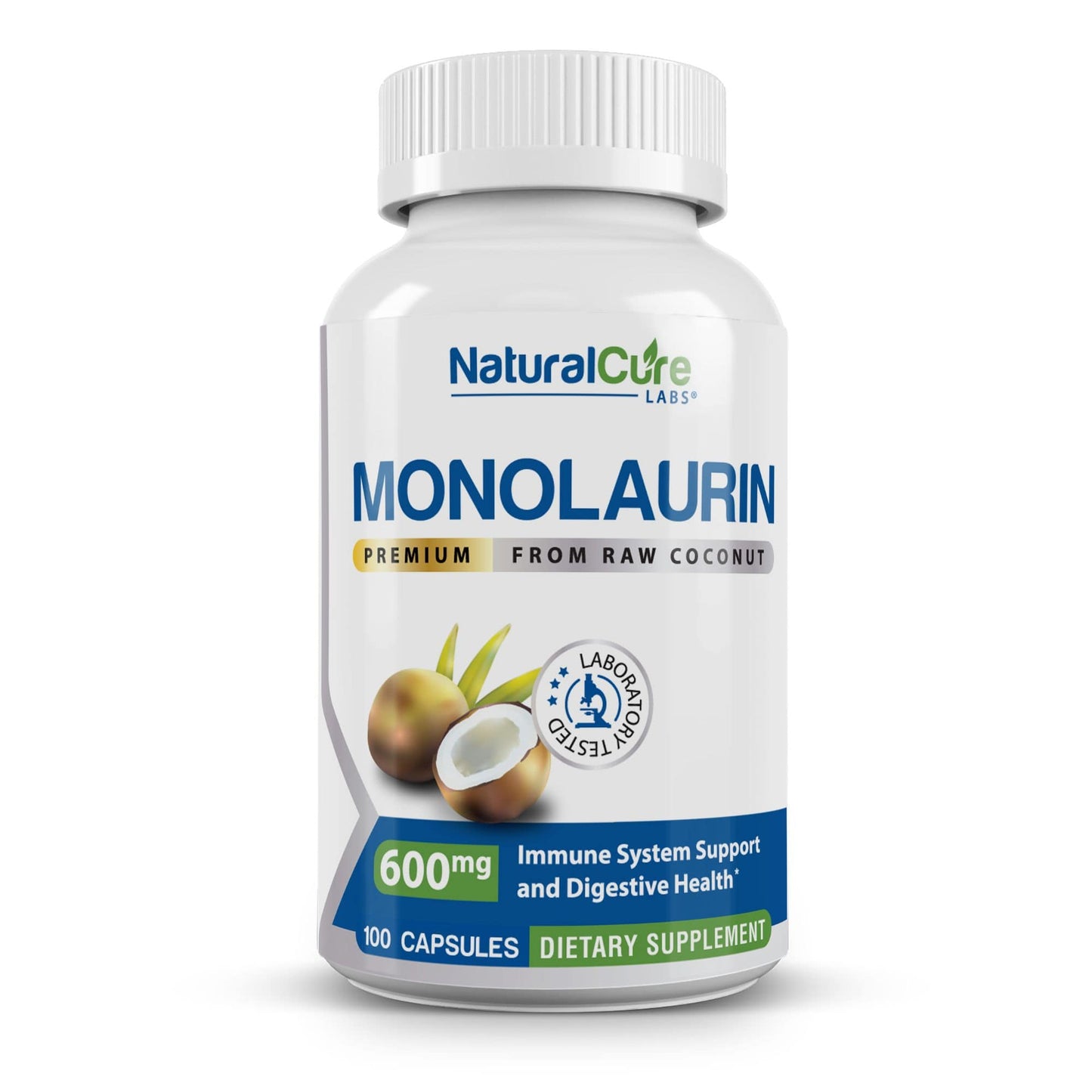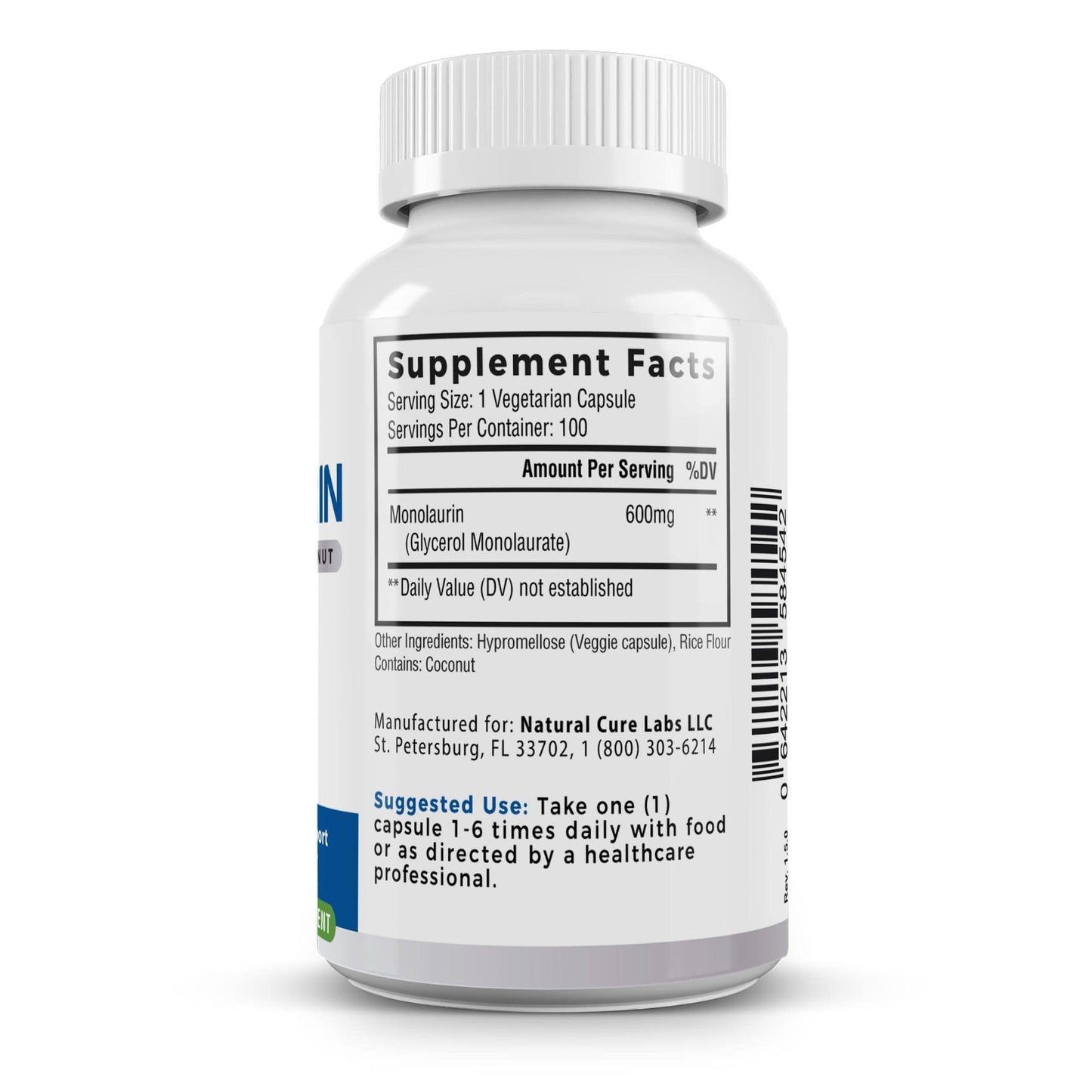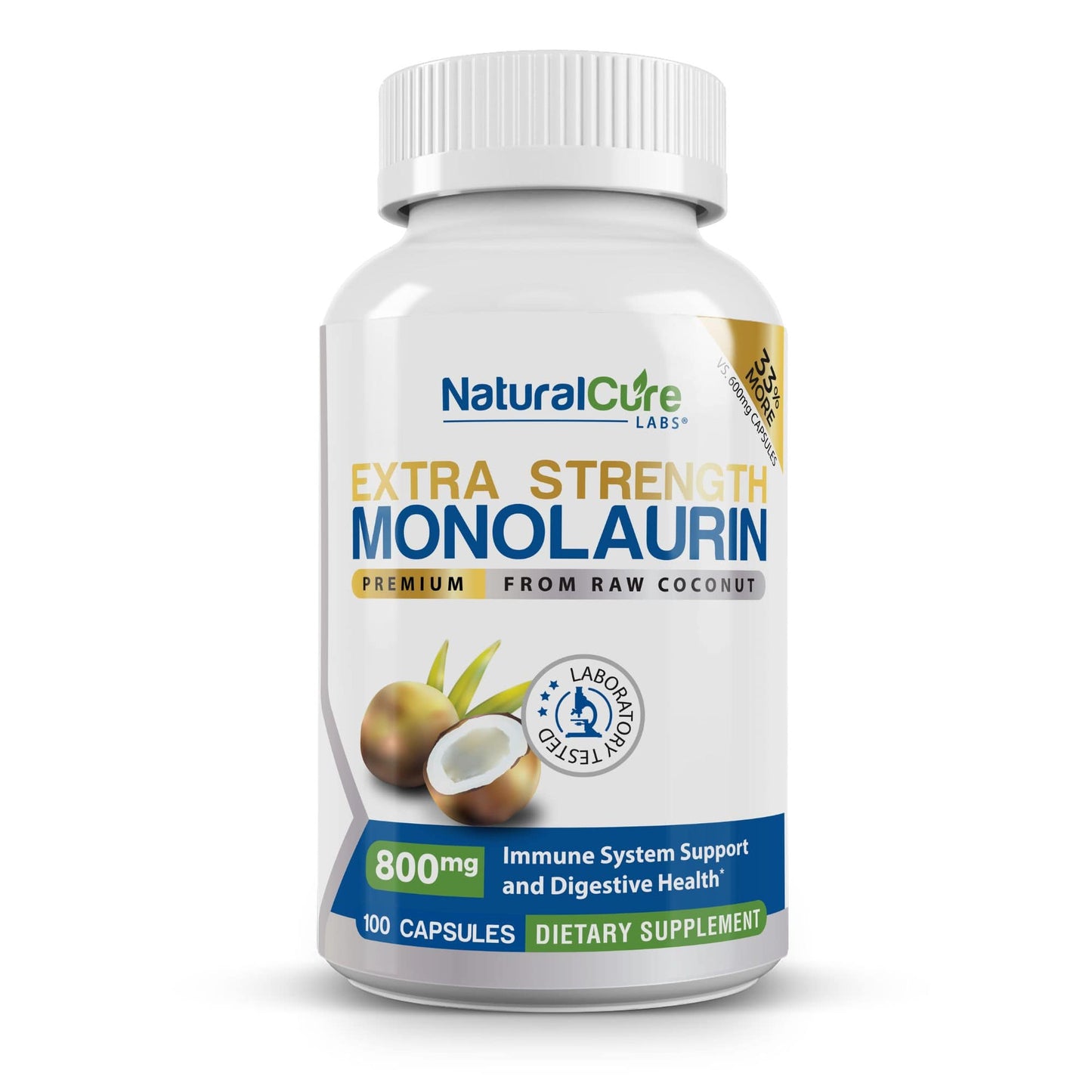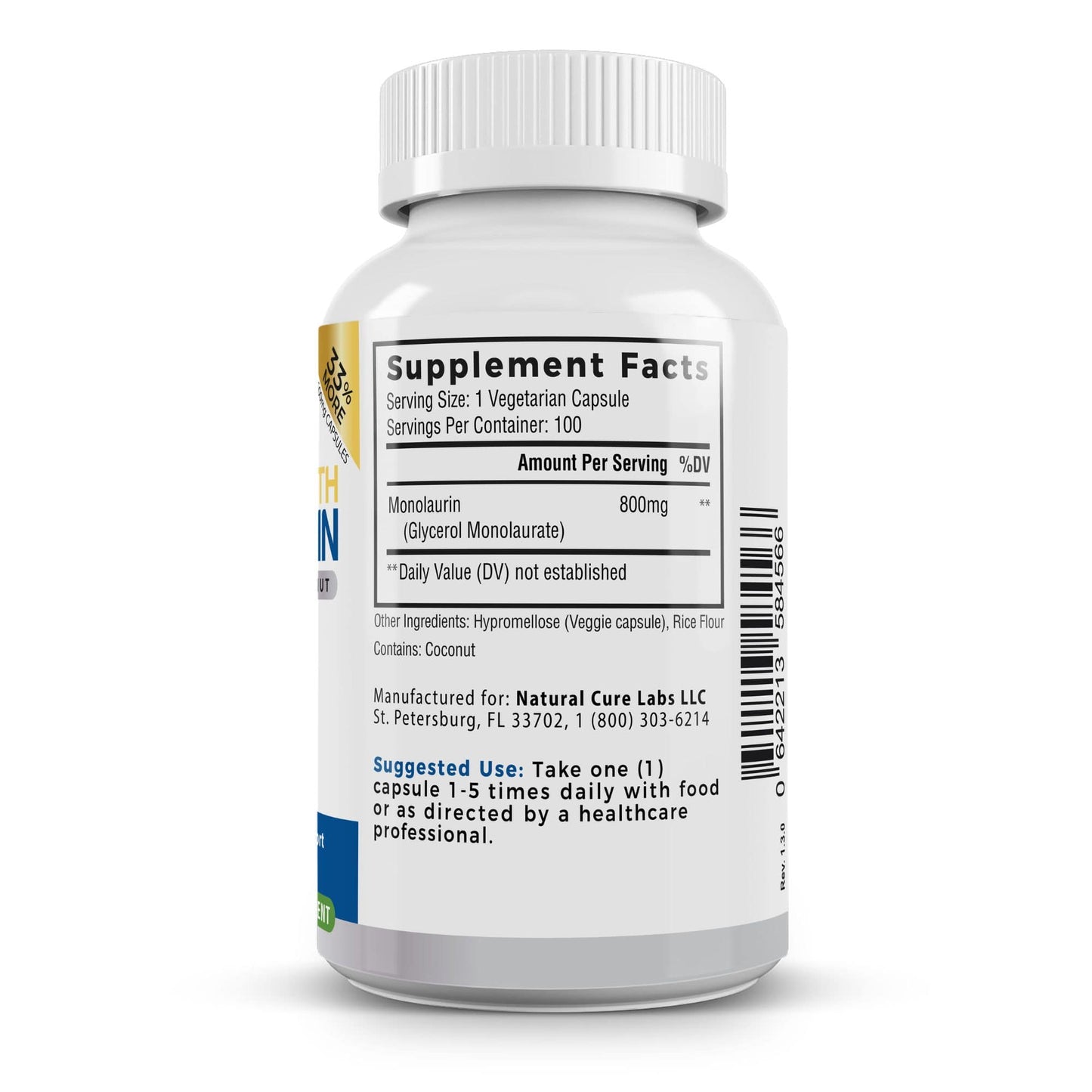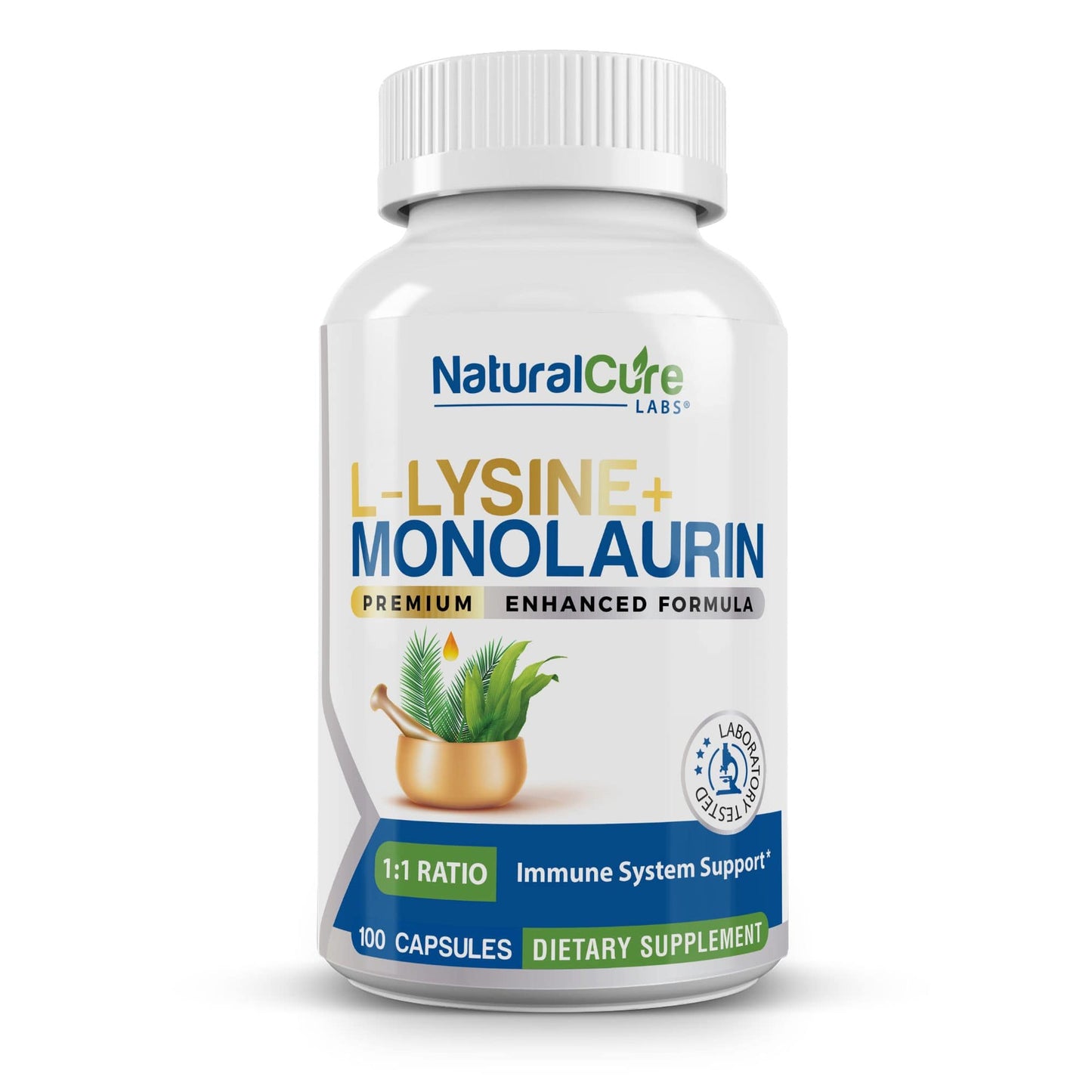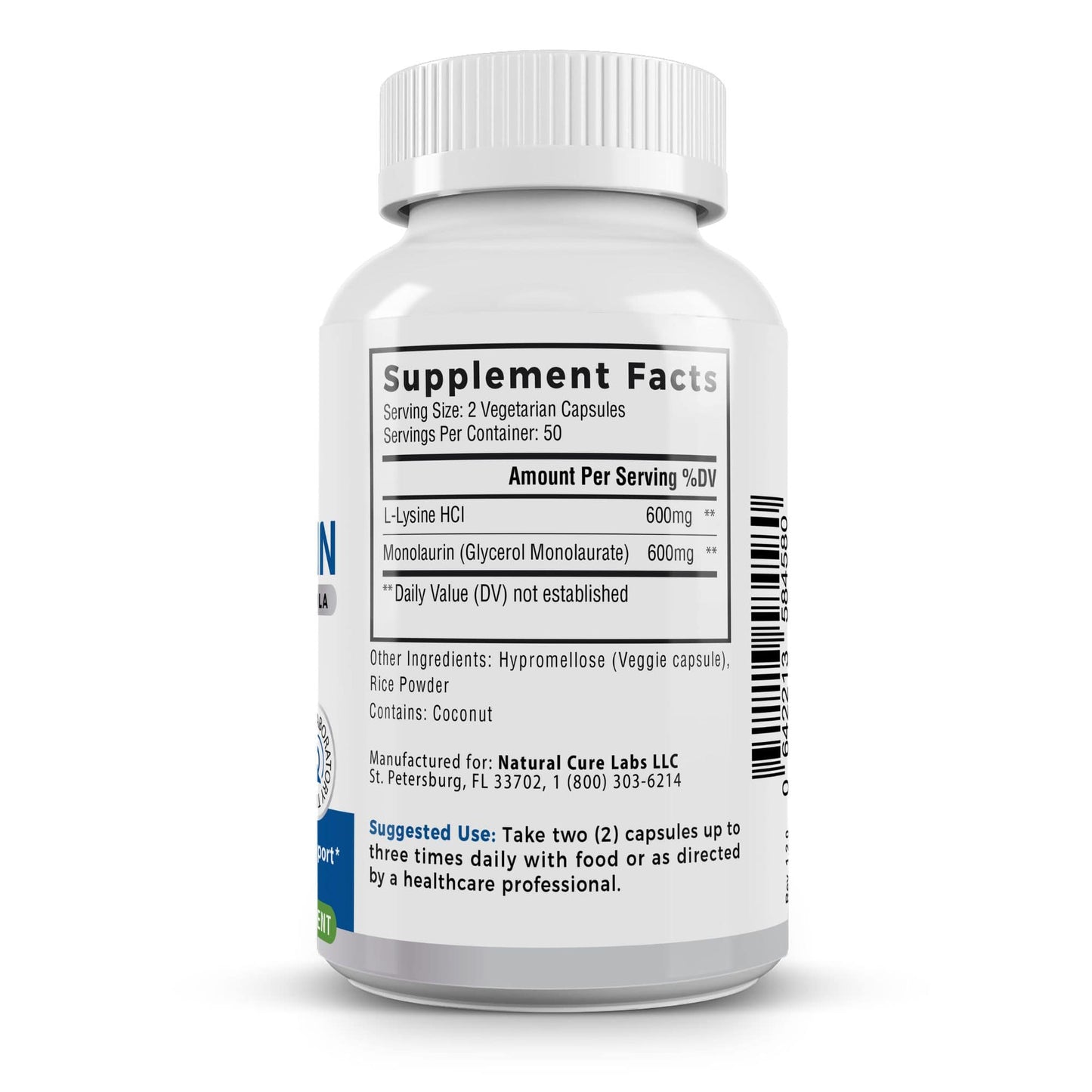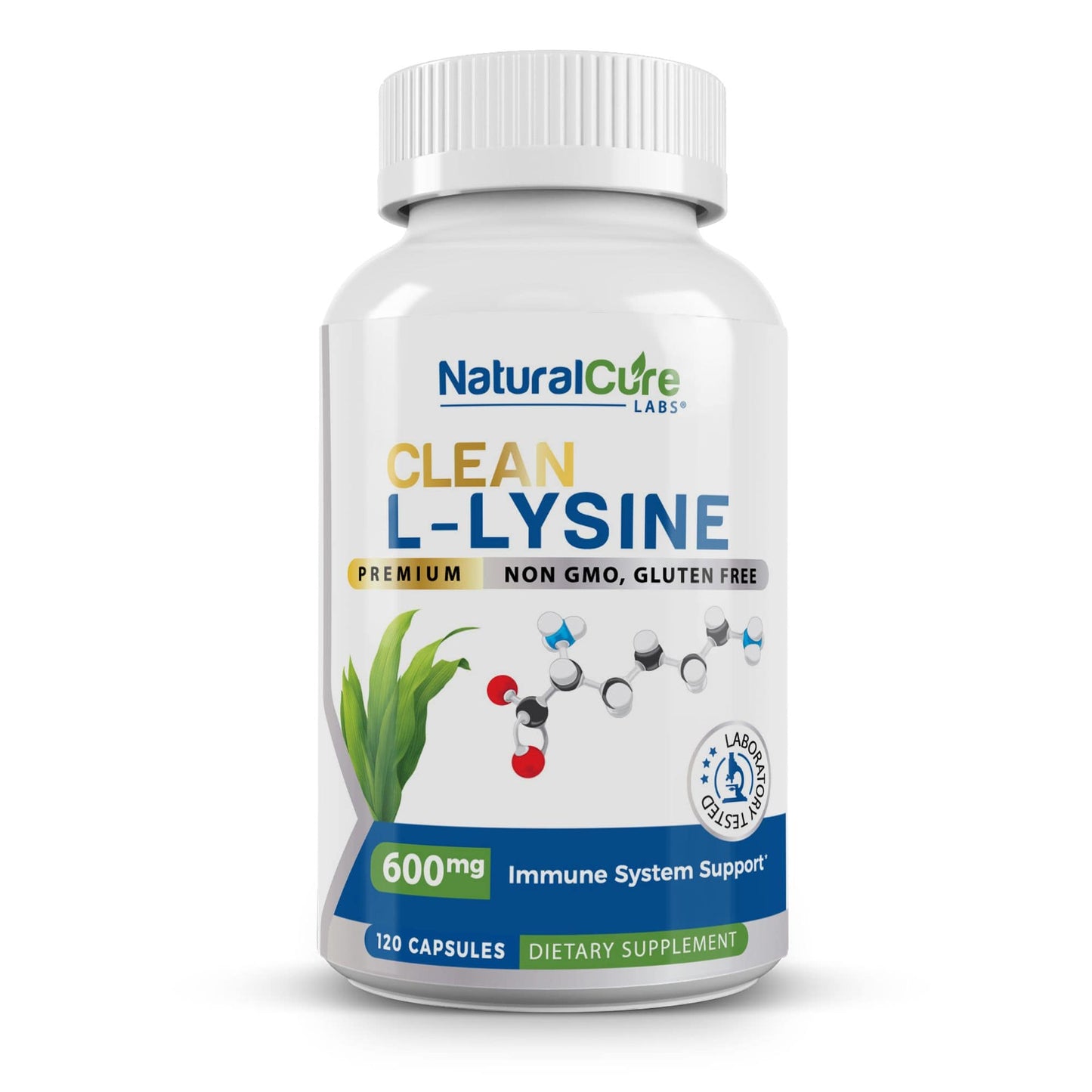
📝 Medically reviewed by Dr. Patricia Shelton
🔍 Last updated October 17, 2024
📚 16 citations
📖 7 minute read
About the Author:

Dr. Patricia Shelton, MD, has been a medical communicator and educator since 2014. She holds a Doctor of Medicine degree and a Bachelor's degree in Neuroscience, both from the University of Washington in Seattle.
--
Monolaurin has gained popularity in recent years for its potential health benefits, particularly for immune support and digestive health⁵. However, finding the best source of monolaurin is essential to ensure you’re getting a product that is effective, safe, and bioavailable.
Jump To:
- Natural Sources of Monolaurin
- Why Natural Sources Alone May Not be Sufficient
- Why Monolaurin Supplements Are More Effective than Natural Sources
- Integrating Monolaurin Into a Healthy Lifestyle
- Conclusion
- References
Keep reading to explore the primary sources of monolaurin, including natural food sources and supplements, and learn which options might be the best for your needs.
See Related: The Positive Effects Of Monolaurin And Health
Natural Sources of Monolaurin
Monolaurin doesn’t occur naturally in foods. Instead, the body converts lauric acid, which is found in high concentrations in certain foods, into monolaurin. Here are the primary natural sources of lauric acid:
1. Coconut Oil
Coconut oil is the richest natural source of lauric acid, with this fatty acid comprising around 50% of its fatty acid content. From this high concentration of lauric acid, the body will synthesize some monolaurin, although the conversion is not particularly efficient⁵. However, to obtain a significant amount of monolaurin from coconut oil alone, one would need to consume large quantities daily, which is not practical for therapeutic purposes⁶.
Example: Research indicates that approximately 10–15 grams of coconut oil provides about 5–7 grams of lauric acid, which can yield only a minimal amount of monolaurin⁷. For levels which provide benefits in lab studies, supplements offer a more reliable solution.
2. Palm Kernel Oil
Palm kernel oil also contains lauric acid, though at lower concentrations than coconut oil, comprising approximately 40-45% of its fatty acid profile⁸. Although the body may convert some of this lauric acid into monolaurin, palm kernel oil also contains higher levels of omega-6 fatty acids, which are associated with inflammation and may offset some health benefits⁹. Additionally, environmental concerns regarding palm oil production make it a less popular choice for health-conscious consumers¹⁰.
3. Human Breast Milk
Human breast milk contains a substantial amount of lauric acid, which plays a critical role in immune support for newborns, helping to protect them from infections during early development¹¹. This highlights the importance of lauric acid and its derivative, monolaurin, for immune function, though it is obviously not a practical source for adults seeking monolaurin benefits¹².

Why Natural Sources Alone May Not Be Sufficient
While coconut oil is the most accessible natural source of lauric acid, consuming it alone provides insufficient amounts of monolaurin to fully realize its beneficial effects. For instance, to match the amount of monolaurin in a 600 mg supplement capsule, one would need to consume over 10 tablespoons of coconut oil daily. This would be a calorie-dense (~1170 calories) and impractical approach for most people¹³. Here are a few points to consider when purchasing a monolaurin supplement:
1. Purity and Quality
Opt for a monolaurin supplement with a 'clean label', made from high-quality, pure ingredients. For both environmental reasons and health-related reasons, it’s better to choose a supplement that’s derived from coconut, not palm kernel oil. Seek out certifications like Good Manufacturing Practices (GMP) to ensure the product is free from contaminants and additives, and look for third-party lab testing to verify its purity and potency.¹⁴.
See related: What Does It Mean To Have A 'Clean Label'?
2. Dosage
Monolaurin supplements typically range from 300 mg to 800 mg per capsule. This allows you to adjust your intake according to your health goals—higher doses may be appropriate for managing infections, while lower doses might suffice for general immune support⁵. ‡
3. Form
Monolaurin is available in capsules, pellets, and powders. Capsules are generally the most convenient and provide accurate dosing, making them easier to incorporate into your daily routine. Powders require specific measuring, which tends to be inconvenient, while pellets may not fully dissolve in the digestive tract. Capsules also reduce the risk of gastrointestinal discomfort from higher doses and ensure consistent dosing and intake¹⁶.

Why Monolaurin Supplements Are More Effective than Natural Sources
While coconut oil and other natural sources of lauric acid can contribute to monolaurin production, they fall short of providing helpful levels without excessive consumption of fats like coconut oil. Monolaurin supplements, however, deliver a standardized and reliable dose, making them a more practical option for anyone seeking consistency and convenience. ‡
As mentioned earlier, to achieve the monolaurin content found in a 600 mg capsule, one would need to consume several tablespoons of coconut oil daily. This may be uncomfortable or impractical for some individuals, especially those sensitive to high fat content⁷. ‡
Integrating Monolaurin Into a Healthy Lifestyle
It's important to understand the potential health benefits of monolaurin. Integrating monolaurin into your daily life can be helpful if you’re looking to prioritize your overall well-being. In general, a well-balanced diet and healthy lifestyle will also help to keep you strong and active. ‡

Begin your health journey on the right foot with our original Premium Monolaurin 600mg supplement. Like all our products, this formula is vegan, gluten-free, and non-GMO. If you have experience with monolaurin from other brands and are seeking a more robust solution, the Extra Strength Monolaurin 800mg is ideal as it delivers more monolaurin per capsule, providing an effective and economical way to achieve higher doses . ‡
"I continue to use Monoluarin on a daily basis, both 600 and 800 mg. There are no fillers, only pure ingredients.
It appears to help with my overall immunity system. I absolutely recommend this product!"
- Rita Falsetto (October 4, 2024)
Conclusion
The best source of monolaurin for most people is high-quality monolaurin supplements. While natural foods rich in lauric acid, like coconut oil, can offer some benefits, they aren’t necessarily an efficient way to achieve higher levels of the helpful compound. When choosing a monolaurin supplement, focus on purity, dosage, form, and brand reputation to ensure you’re getting a product that is both safe and effective.
Monolaurin supplements provide a practical and potent way to support immune function, combat infections, and promote overall health. Whether you’re seeking everyday immune support or addressing specific health challenges, monolaurin could be a valuable addition to your wellness regimen.
Keep reading: Monolaurin vs. Lauric Acid: What’s the Difference?
References
- Lieberman, S., Enig, M.G., & Preuss, H.G. A Review of Monolaurin and Lauric Acid: Natural Virucidal and Bactericidal Agents. Alternative & Complementary Therapies, 12(6), 310-314.
- Smit, S., et al. Coconut oil and lauric acid: Potential applications in health and disease. Journal of Functional Foods, 66, 103815.⁶
- Kabara, J. J. Fatty acids and derivatives as antimicrobial agents; a review. In The Pharmacological Effect of Lipids II, 1-14. American Oil Chemists’ Society.
- Enig, M. G. Know Your Fats: The Complete Primer for Understanding the Nutrition of Fats, Oils, and Cholesterol. Lifeline Press.
- Wang, L.L., & Johnson, E.A. Inhibition of Listeria monocytogenes by fatty acids and monoglycerides. Applied and Environmental Microbiology, 58(2), 624-629.
- Nishida, Y., & Ito, S. Human milk and the immune system. Current Opinion in Pediatrics, 29(6), 749-754.
- Bergsson, G., et al. Killing of Gram-positive cocci by fatty acids and monoglycerides. APMIS, 109(10), 670-678.
- Johnson, W. A., et al. Good Manufacturing Practices for Dietary Supplements. Journal of Dietary Supplements, 16(1), 78-82.
- Huang, C.B., et al. Short- and medium-chain fatty acids exhibit antimicrobial activity for oral microorganisms. Archives of Oral Biology, 56(7), 650-654.
- Isaacs, C.E., Thormar, H., & Kim, K.S. Inactivation of enveloped viruses in human bodily fluids by purified lipids. Annals of the New York Academy of Sciences, 724, 457-464.
- Dayrit, F. M. Lauric acid is a medium-chain fatty acid, coconut oil a medium-chain triglyceride. Philippine Journal of Science, 143(2), 157-166.
- Shilling, M., et al. Antimicrobial effects of virgin coconut oil and its medium-chain fatty acids on Clostridium difficile. Journal of Medicinal Food, 16(12), 1079-1085.
- Huang, W. Y., Davidge, S. T., & Wu, J. (2020). Bioactive natural constituents from food sources—potential use in hypertension prevention and treatment. Critical Reviews in Food Science and Nutrition, 60(8), 1310-1333.
- Petroski, W., & Minich, D. M. (2020). Is there such a thing as "anti-nutrients"? A narrative review of perceived problematic plant compounds. Nutrition Reviews, 78(10), 816-833.
- Varma, S. R., Sivaprakasam, T. O., Arumugam, I., Dilip, N., Raghuraman, M., Pavan, K. B., Rafiq, M., & Paramesh, R. (2019). In vitro anti-inflammatory and skin protective properties of Virgin coconut oil. Journal of Traditional and Complementary Medicine, 9(1), 5-14.
- Kabara, J. J., Swieczkowski, D. M., Conley, A. J., & Truant, J. P. (1972). Fatty acids and derivatives as antimicrobial agents. Antimicrobial Agents and Chemotherapy, 2(1), 23-28.

